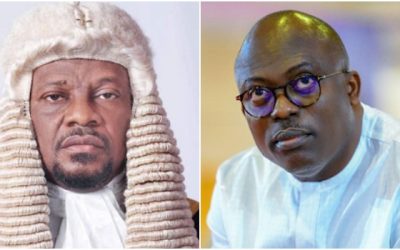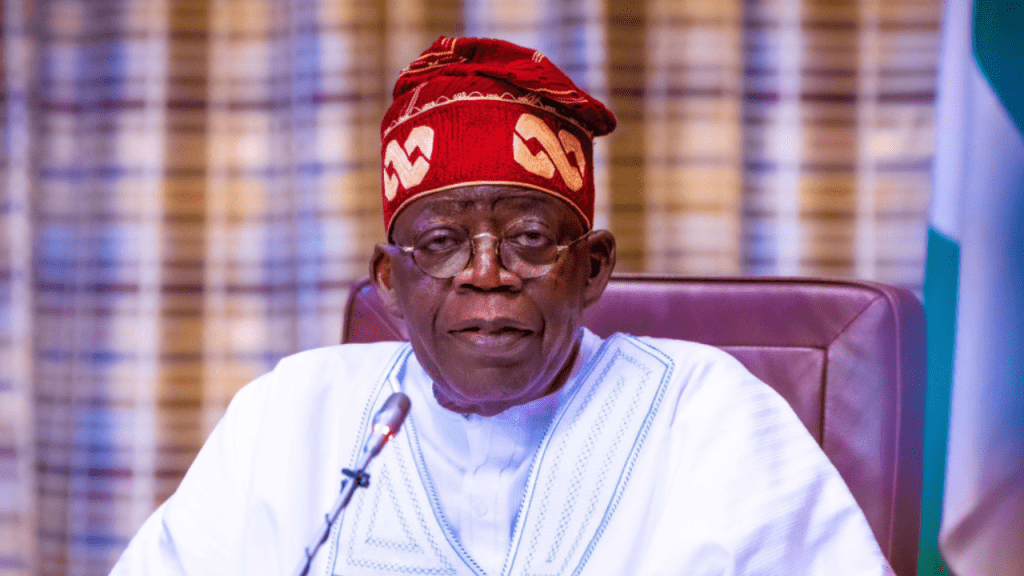
Presidency Refutes Lamido’s Claims On Tinubu’s June 12 Role

The Presidency has strongly refuted recent claims made by former Jigawa State Governor, Alhaji Sule Lamido, regarding Bola Tinubu’s role during the annulment of the June 12, 1993, presidential election, describing them as “false” and “revisionist.”
In a statement titled ‘Setting the Record Straight: Tinubu’s Role in the June 12 Struggle’, issued on Sunday by the Special Adviser to the President on Information and Strategy, Bayo Onanuga, the presidency expressed concern over Lamido’s comments made during a live television appearance, in which he accused Tinubu of supporting the annulment of Nigeria’s most historic election.
Speaking during an interview on Arise Television on Saturday, Lamido said Tinubu, who was a senator under the Social Democratic Party during the election, was “a major supporter” of former military ruler, General Ibrahim Babangida, who annulled the poll.
The statement emphasised that Lamido’s remarks amounted to a blatant distortion of Nigeria’s democratic history. The presidency defended Alhaja Mogaji, Tinubu’s mother, noting that she never aligned with any pro-annulment movement.
READ ALSO: Tinubu Supported June 12 Annulment, Not Part Of Pro-Democracy Struggle – Lamido
Part of the statement read, “The attention of the Presidency has been drawn to recent comments made by Alhaji Sule Lamido, former Governor of Jigawa State, on live television, in which he falsely accused Bola Tinubu of supporting the annulment of the June 12, 1993, presidential election.
“Alhaji Lamido’s claims represent a distortion of history and a regrettable attempt at revisionism. He alleged that President Tinubu only rose to prominence after the formation of NADECO and claimed that Tinubu’s mother, Alhaja Abibatu Mogaji, mobilised market women to back the annulment. These allegations are patently false.
“Let us set the record straight: Alhaja Mogaji never mobilised market women to support the unjust annulment. Had she done so, she would have lost her position as market leader in Lagos. While she once had a personal relationship with then-President Babangida, this was before the annulment crisis.”
The statement turned the spotlight on Lamido’s actions during the crisis, accusing him and other Social Democratic Party leaders of failing to resist military pressure.
“It is important to remind Nigerians that Alhaji Lamido, as secretary of the Social Democratic Party (SDP)—the party whose candidate, MKO Abiola, won the June 12 election—was among those who failed to oppose the military’s injustice. The SDP leadership, including Lamido and chairman Tony Anenih, wrote their names in the book of infamy by surrendering the people’s mandate without resistance. To their eternal shame, Lamido and Anenih teamed up with the defeated National Republican Convention to deny Abiola his mandate.”

In contrast, the Presidency said, Tinubu was among those who actively challenged the annulment before, during, and after the collapse of democratic institutions in 1993.
“In sharp contrast, Senator Bola Tinubu stood firm even before General Abacha dissolved the political parties and all democratic institutions, including the National Assembly, on November 17, 1993, following his coup. Days after General Babangida addressed the Senate and announced his decision to step aside on August 27, 1993, the setting up of an interim government to replace him, Senators debated the speech.
“On the Senate floor on August 19, 1993, Tinubu unequivocally condemned the annulment, describing it as another coup d’état and urging Nigerians to reject injustice and lawlessness. The records captured his contribution, showing that he supported upholding the June 12 election, not against it, as Lamido claimed.”









